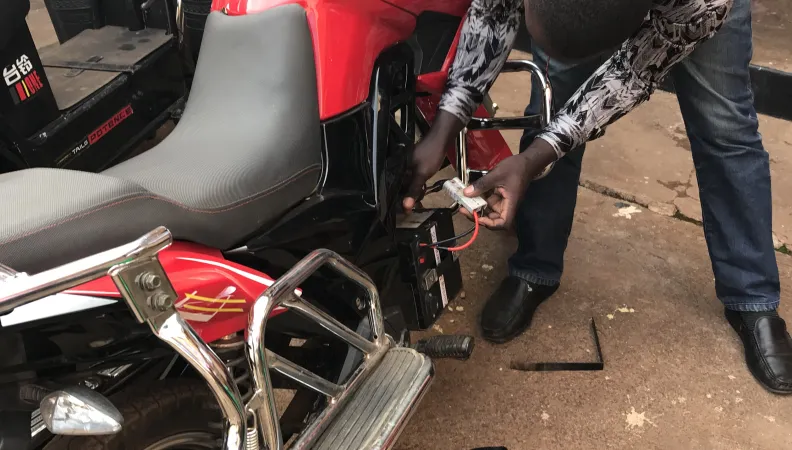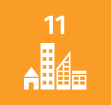Share the page
Solar-powered motorcycle taxis to help promote energy transition in Ouganda (ZEMBO)
Project


-
Project start date
-
Status
Completed
-
Estimated date of project termination
-
-
Project financing date
-
-
Financing duration
-
1,5 YEARS
-
Type of program
-
FFEM
-
Global financing amount
-
4 394 000 €
-
FFEM financing amount
-
600 000 €
-
Project lead member institution(s)
-
AFD
-
Country and region
-
Uganda
-
Location
-
Kampala
-
Type of financing
-
Grant
-
Partners
-
ADEME, Founders, Investors, Nordic Development Fund
-
Beneficiaries
-
Zembo SAS
-
Type of beneficiary
-
private sector



Taking advantage of lower-cost solar energy and electric batteries, together with booming mobile payment in Africa, the Zembo project hires out and sells e-bikes that can be recharged through a network of solar-powered charging stations. This initiative, launched in Kampala, is supported by the FFEM because of its contribution to sustainable mobility.
Context
With a population of 43 million and a growth rate of 5%, Uganda has set its sights on improving its energy and road infrastructures whilst reducing its dependency on fossil fuels. Urban traffic within the capital is very dense, with almost 150,000 internal-combustion powered motorcycle taxis crowding Kampala’s streets. While these form an essential means of transport to escape the congestion and service hard-to-reach neighbourhoods, they also cause significant atmospheric pollution and road traffic accidents.
The alternative model, developed by start-up Zembo who are in charge of implementing and managing the project, allows users to hire or purchase e-bikes that can then be recharged through a network of solar-powered charging stations. This programme supports the ecological transition and is beneficiary of an FFEM refundable subsidy.
Description
There are three components to the project:
- Offering drivers good-quality e-bikes that they are able to own themselves at competitive prices, and to ensure these are properly maintained.
- Creating a network of charging stations enabling vehicles to be powered by clean energy, offering a ‘Pay as You Go’ system.
- Optimising energy distribution and management, both within and outside the network
Impacts
- Contributing to social and economic development, by increasing users’ incomes, lowering energy costs and creating jobs (which would help mitigate the impacts on small petrol retailers).
- Reducing environmental pollution, thanks to lower CO2 and fine particle emissions, while paying particular attention to recycling the batteries.
Exemplary and innovative characteristic
Using Pay as You Go solar energy for activities generating revenue (and not for domestic use) is a stand-out feature of the Zembo project. Moreover, the transition from conventional to electrically-powered mobility is new to the African continent. The involvement of the city of Kampala, the second most-polluted on the continent, is another innovative aspect of this project. Zembo’s model could also be replicated in other African countries and could be rolled out across a dozen of these as soon as 2025.
Evaluation summary of the ZEMBO project

Sustainable Development Goals
ODD13 Climate action

ODD11 Sustainable cities and communities

ODD8 Decent work and economic growth



